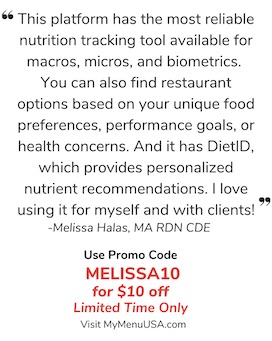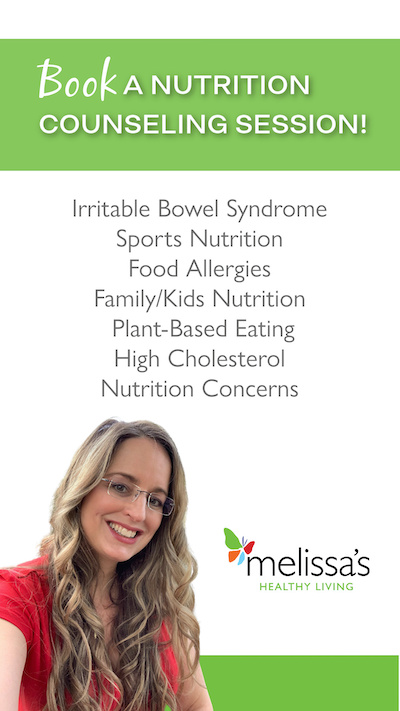
Do you feel young at heart? I do! But feeling great doesn’t always equate to great health and that’s why incorporating these top tips for a healthy heart is so important!
Did you know that plaque buildup in the arteries (atherosclerosis) actually starts early in childhood and progresses with age? It is also estimated that 16.5 million Americans 20 years and over have heart disease so it’s not only a concern for the elderly. (1,2)
Fortunately, a recent study found that the risk of heart disease can be reduced with a healthy lifestyle, even if you are genetically predisposed. Participants in the study with a high genetic risk, that lived a healthy lifestyle, were 46% less likely to experience a “coronary event,” such as a heart attack, than those with high genetic risk and an unhealthy lifestyle. (3)
What we do on a day to day basis clearly has a strong role in heart disease risk. In fact, 45% of deaths related to heart disease are from the diet. So let’s take the first step towards a healthy lifestyle with a healthy diet! We’ll start by taking a look at which types of diets put you at risk and then dive into what you can do to change things around! (1)
High-Risk Factors for Heart Disease
Diet places a large role in risk of heart disease. The following diet components can increase risk:
- high in sodium intake
- low in nuts/seeds
- high in processed meats (lunch meats, hot dogs, sausage, corn beef)
- low intake of seafood omega-3 fats
- low intake of vegetables and fruits
- high intake of sugar-sweetened beverages
- low in potassium
Heart-Healthy Diets
- The Mediterranean Diet
- The DASH diet (Dietary Approach to Stop Hypertension)
- Plant–based with an emphasis on anti-inflammatory foods
These health-promoting diets target the key eating tips for heart disease prevention below.
Top Tips for a Healthy Heart
Cut your salt intake
- Consume 2300 mg or less a day (that is equal to 1 teaspoon)
- Limit fast foods, restaurants, deli meats, and processed foods. These are often high in sodium. Cook at home and use spices and herbs for seasoning whenever possible
- Look at nutritional fact labels—choose items that are less than 5% of the daily value
- Gradually reduce your sodium intake to help your body to adjust and maintain the change better
Up your potassium intake
It can help lower your blood pressure, especially if your sodium intake is high. (3) These foods are great sources of potassium:
- Fruits: Oranges, honeydew, avocados
- Vegetables: Spinach, sweet potatoes
- Whole grains: Brown rice, quinoa, couscous
- Legumes: Beans, lentils (like this tasty lentil, feta, and tomato salad)
- Nuts: Walnuts, almonds, pecans
- Dairy: Low–fat or fat-free milk or kefir, cheese, and yogurt
Eat fish high in omega-3 fats
These fatty acids provide many benefits to your heart!
- Try salmon, sardines, lake trout, and tuna
- Concerned about excess mercury? Levels are often high in predatory fish, so it’s best to avoid shark, swordfish, king mackerel, or tilefish. (4)
Eat more nuts/seeds
They make great on–the–go snacks and have omega-3 fats too! Choose the nutrition powerhouses like walnuts and flax meal (aka ground flax seeds).
Find simple and delicious ways to eat more vegetables, fruit and plant-based foods
- Make fruit smoothies and add spinach. You won’t taste the spinach and you’ll get the added nutrients.
- Boost veggies in everyday dishes, for example, add fresh or frozen veggies to omelets or scrambled eggs or top plant-based burgers or lean burgers with veggies. Prep veggies the day before to save time in the morning.
- Count the colors on your plate and aim to have at least 5 different colors daily. For example black beans, white onions, red peppers, orange sweet potatoes, brown whole grains, green arugula, and yellow squash.
Choose healthier alternatives to sugar-sweetened beverages
- Try fruit and herb-infused waters, such as watermelon basil, mint cucumber melon, or pineapple cilantro jalapeño, if you’re feeling adventurous!
Making small changes each day can help with long-term heart health. Start small, and work your way up to incorporating each item on this list of top tips for a healthy heart.
References:
- Benjamin, E.J., Virani, S.S., Callaway, C.W., Chamberlain, A.M., Chang, A.R., Cheng, S….Muntner, P. (2018) Heart Disease and Stroke Statistics-2018 Update: A Report from the American Heart Association. The American Heart Association Journal 137(12), e72, e128-131. https://doi.org/10.1161/CIR.0000000000000558
- McGill, H.C., McMahan, C.A., Herderick, E.E., Malcom, G.T., Tracy, R.E., & Strong, J.P. (2000). Origin of atherosclerosis in childhood and adolescence, The American Journal of Clinical Nutrition, 72 (5), 1307–1315. https://doi.org/10.1093/ajcn/72.5.1307s
- Khera, A. V., Emdin, C. A., Drake, I., Natarajan, P., Bick, A. G., Cook, N. R., … Kathiresan, S. (2016). Genetic Risk, Adherence to a Healthy Lifestyle, and Coronary Disease. The New England Journal of Medicine, 375(24), 2349–2358. https://doi.org/10.1056/NEJMoa1605086
- (2017, November 29). Eating Fish: What Pregnant Women and Parents Should Know. Retrieved from https://www.fda.gov/Food/ResourcesForYou/Consumers/ucm393070.htm



